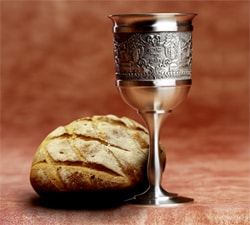“And he took bread, and gave thanks, and brake it, and gave unto them, saying, This is my body which is given for you: this do in remembrance of me” (Luke 22:19).

Knowing and understanding are certainly important, but knowledge is built upon doing, not the other way around. In the verse I just read from Luke 22, I want to emphasize the words this do. Jesus said “this do in remembrance of me.”
He said to do something, and He also said that we were to do it in a particular way. We were to do it leaning toward a particular end. He did not say to figure out all the possible ramifications of doing it in that particular way, and He did not say to write learned treatises on the ramifications of doing it in that way, and, having figured it all out, to then commence the project of actually doing it.
No, we begin with the doing. Each time we “do this,” we are to remind ourselves—and one another—that we are remembering the Lord. But we don’t remember Him perfectly, and then come to the Supper for our reward. It is not as though we were show poodles, and remembering Him is the trick we perform, and the Supper is the treat we get. A thousand times no.
We do the Lord’s Supper the same way we master our native language. We begin by doing, and often by “doing” in very inadequate ways. Think of a toddler speaking his first sentence. But the arc of all language bends toward intelligibility, and as we “do,” we are constantly learning, honing, refining, and remembering. We are closing in on it.
We want this sacrament that is before you now to be your native language. Just as a literate person cannot look at a word without seeing what it means, so also we want you, as real Christians, to be unable to look at the bread and wine and not see Christ.
So come, and welcome, to Jesus Christ.

